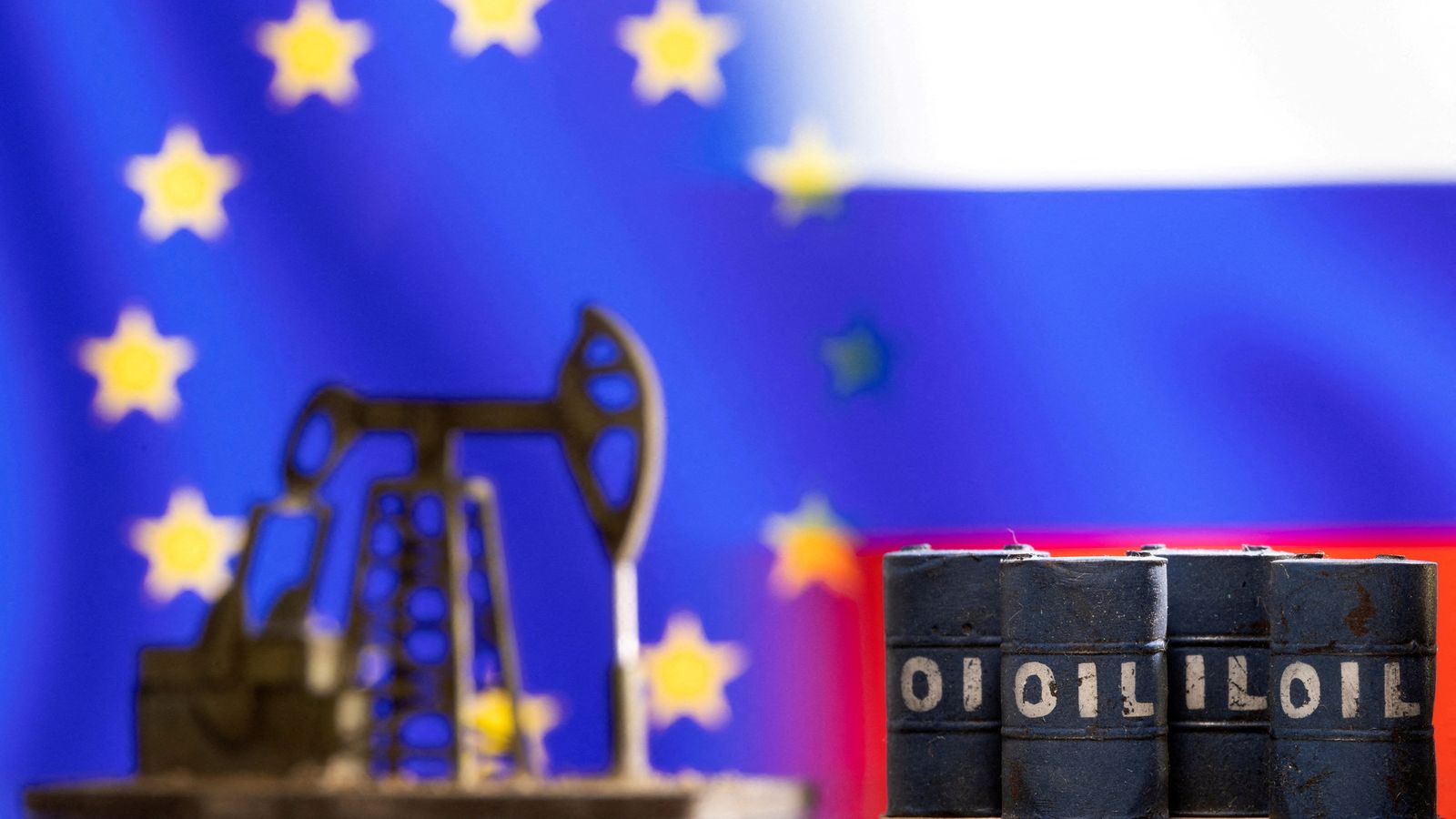Western countries implement Russian oil price cap as pressure over Ukraine mounts for President Putin
Western countries have begun imposing a $60-per-barrel price cap and ban on some types of Russian oil as part of new measures to put further pressure on Moscow in light of its ongoing invasion of Ukraine.
Agreed upon on Friday, the European Union along with Britain, Australia, Canada, Japan and the United States have imposed the price cap, with the 27-country European bloc also imposing an embargo on Russian oil shipped by sea.
The move prompted a rejection from the Kremlin and criticism from President Volodymyr Zelenskyy of Ukraine, whose government wants the cap to be half as high.
On Monday, the Kremlin said that a Western price cap on Russian oil would destabilise global energy markets but would not affect Moscow's ability to sustain its military operation in Ukraine.
Dmitry Peskov, the Kremlin's spokesperson, said Russia was preparing how it would respond to the move by the G7 and allies to ban countries and companies from dealing with Russian sea-borne exports of oil where the price is above $60 (£48.92) a barrel.
Calling Russia's actions in Ukraine a "special military operation, Mr Peskov told reporters: "Russia and the Russian economy have the required capacity to fully meet the needs and requirements of the special military operation."
He added that the price cap would "completely destabilise" the global energy markets, and told Europeans that they should brace themselves for higher prices.
Global benchmark Brent crude was up 1.7% at $87.01 (£70.95) a barrel on Monday, following the European Union's move to adopt the price cap on Russian oil - which also bans insurers in Europe from providing coverage policies to tankers carrying Russian oil above the price threshold.
Russian deputy prime minister Alexander Novak, who is in charge of energy issues, warned in televised comments on Sunday that countries that try to use the cap will not be able to buy oil from Russia.
"We will only sell oil and oil products to the countries that will work with us on market terms, even if we have to reduce output to some extent," he said, hours before the price cap came into effect.
The Ukrainian government said over the weekend that at $60, Russia will still reap annual revenues of $100bn (£81.6bn), money which can be used to finance its war in Ukraine. It has called for a price cap of $30 per barrel.
As the world's second biggest oil producer, Russia relies on the sale of oil and gas to underpin its economy, which has already come under numerous international sanctions over President Vladimir Putin's war in Ukraine.





Post a Comment